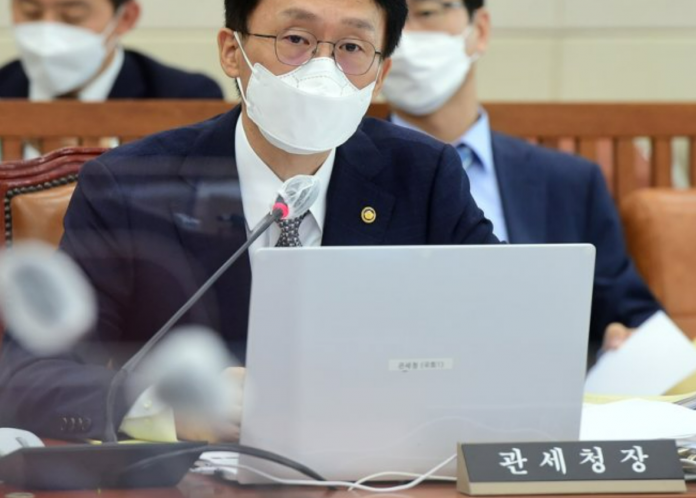
Korea registered over 812.2 billion won ($676.9 million) in questionable foreign currency transfers involving cryptocurrencies in the first eight months of the year, a ruling party lawmaker said Tuesday.
Such foreign currency transfers are subject to scrutiny under the Anti-Money Laundering Act. The authorities expect they have been used for tax evasion, overseas gambling and drug smuggling.
Rep. Song Jae-ho of the Democratic Party of Korea (DPK) said data submitted from the Korea Customs Service (KCS) for the National Assembly Finance Committee’s audit of the customs agency showed a record high, 21-fold year-on-year increase in cryptocurrency-related transfers that accounted for about 68 percent of 1.19 trillion won in suspicious foreign currency transfers as of August.
Individuals involved in 13 cases of falsifying foreign currency remittance reports or failure to submit them were fined a combined 885.6 billion won. Questionable crypto-mediated foreign currency transfers were 784.1 billion in 2018, 76.2 billion in 2019 and 20.4 billion in 2020.
The lawmaker claimed the spike this year was explained by the new law that took effect Sept. 24 when cryptocurrency exchanges without real-name accounts issued by commercial lenders were forced out. The stricter rule was the first step by the Financial Services Commission (FSC), the country’s top financial policy regulator, to rein in the virtual asset market that has long avoided regulatory scrutiny despite a rapid increase in the number of investors.
“We are aware of the growing need for deeper discussions on ways for the virtual asset market regulation to enhance consumer protection regardless of the volume of their investments,” he said.
The lawmaker said an increasing number of illegal foreign currency trade and fraud cases were reported as defined by those using the so-called “kimchi premium” for greater gains. As an example, an unregistered foreign exchange business transferred money from local crypto exchange accounts at the request of an overseas client who wanted to send money to an account held by a Korean user while avoiding foreign exchange authorities’ scrutiny.
In another case, an owner of a trading company in Korea was fined after netting capital gains from bitcoin trading using money in falsified invoices he sent to a paper firm he had set up overseas. The money was used to buy cryptocurrency overseas.
The KCS said it plans to strengthen the information collection of virtual asset-related transactions and conduct a more intensive inspection on illegal transactions including money laundering and currency laundering.
Lee Kyung-min성(2021.10.12) Korea’s unregulated crypto-mediated FX transfers hit record-high
retrieved from https://m.koreatimes.co.kr/pages/article.asp?newsIdx=316898





![[November]Uptober No More](https://coinhubkorea.com/wp-content/uploads/2025/10/Whisk_d78880efb01a730907f4be201effefe1dr-1-100x70.jpeg)
